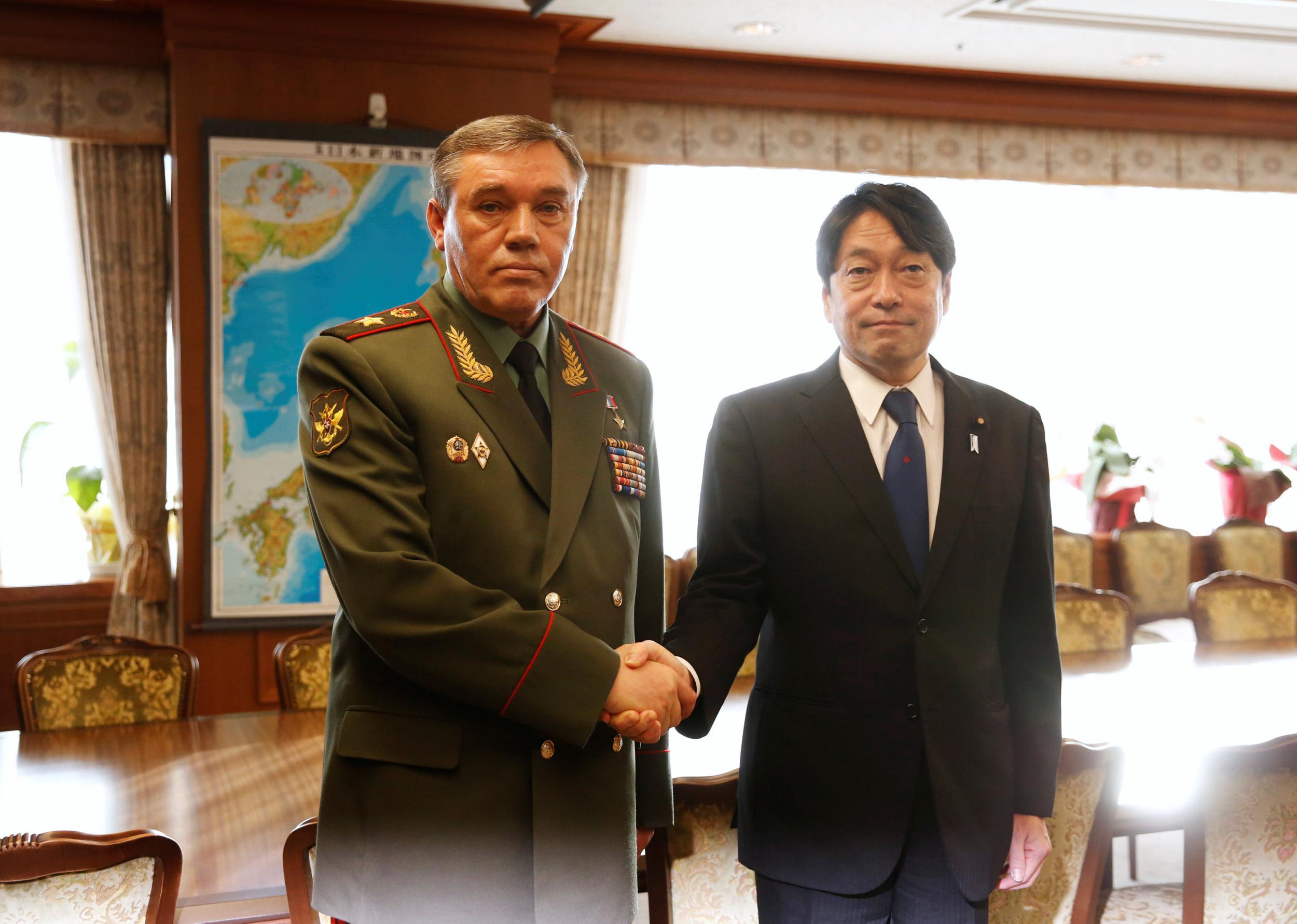North Korea: Russian military chief attacks US-led drills near border for causing instability
'Carrying out military training in regions surrounding North Korea will only heighten hysteria and make the situation unstable'

Your support helps us to tell the story
From reproductive rights to climate change to Big Tech, The Independent is on the ground when the story is developing. Whether it's investigating the financials of Elon Musk's pro-Trump PAC or producing our latest documentary, 'The A Word', which shines a light on the American women fighting for reproductive rights, we know how important it is to parse out the facts from the messaging.
At such a critical moment in US history, we need reporters on the ground. Your donation allows us to keep sending journalists to speak to both sides of the story.
The Independent is trusted by Americans across the entire political spectrum. And unlike many other quality news outlets, we choose not to lock Americans out of our reporting and analysis with paywalls. We believe quality journalism should be available to everyone, paid for by those who can afford it.
Your support makes all the difference.Russia's military chief warned on Monday that military exercises by Japan, the United States and South Korea aimed at countering North Korea only raise hysteria and create more instability in the region.
Russian Chief of the General Staff of the Armed Forces General Valery Gerasimov, issued his warning in Tokyo as the United States, Japan and South Korea began a two-day exercise to practice tracking missiles amid rising tension over North Korea's weapons programmes.
“Carrying out military training in regions surrounding North Korea will only heighten hysteria and make the situation unstable,” Gerasimov said at the beginning of a meeting with Japanese Minister of Defence Itsunori Onodera.
This week's exercise by the United States and its two Asian allies, in which they will share information on tracking ballistic missiles, comes just days after large-scale drills by US and South Korean forces that North Korea said made the outbreak of war “an established fact”.
North Korea says its weapons programmes are necessary to counter US aggression.
On 29 November, North Korea test-fired its latest ballistic missile, which it said was its most advanced yet, capable of reaching the mainland United States.
China has also repeatedly called for the United States and South Korea to stop their exercises, which North Korea sees as preparation for an invasion.
Chinese Foreign Ministry spokesman Lu Kang, asked in Beijing about the latest US, South Korean and Japanese drills, said the situation was in a vicious cycle that if followed to a conclusion would not be in anyone's interests.
“All relevant parties should do is still to completely, precisely and fully implement the relevant UN Security Council resolutions towards North Korea, and do more for regional peace and stability and to get all parties back to the negotiating table. Not the opposite, mutual provocation,” Lu said.
Gerasimov's visit to Japan is the first by a senior Russian military official in seven years and follows the resumption of “two-plus-two” defence and foreign minister talks in March after Russia annexed Crimea.
Relations between Russia and Japan have been hampered for decades over the ownership of four islands north of Japan's Hokkaido, captured by Soviet forces at the end of World War Two. Japan has declined to sign a formal peace treaty with Russia until the dispute is resolved.
Gerasimov also met Katsutoshi Kawano, the chief of staff of Japan's Self Defence Forces.
China's Defence Ministry said on Monday it had begun a planned joint simulated anti-missile drill with Russia in Beijing, which had “important meaning” for both countries in facing the threat from missiles. It said the exercise was not aimed at any third party.
China and Russia both oppose the development of global anti-missile systems, the ministry added in a statement.
China and Russia both oppose the deployment in South Korea of the advanced US Terminal High Altitude Area Defense (THAAD) anti-missile system.
China in particular fears the system's powerful radar could look deep into its territory, threatening its security.
The United States and South Korea say the system is needed to defend against the threat of North Korean missiles.
It is not clear if this week's exercise by US, South Korean and Japanese forces will involve the THAAD system.
(Additional reporting by Ben Blanchard and Michael Martina in Beijing; Editing by Robert Birsel)
Join our commenting forum
Join thought-provoking conversations, follow other Independent readers and see their replies
Comments